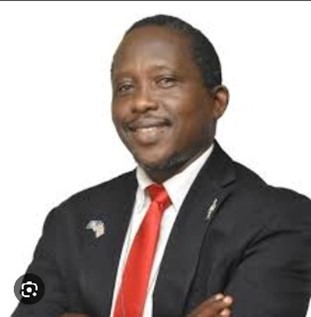Liberia’s pursuit of justice for war crimes and economic crimes committed during its civil conflicts has taken a significant step forward with the establishment of the Office for the establishment of War and Economic Crimes Court (OWECC). This dedicated office, headed by newly appointed Executive Director Dr. Cllr. Jallah A. Barbu, signals the Liberian government’s commitment to holding perpetrators accountable and addressing the legacy of violence and corruption. Crucially, the OWECC is appealing to the Economic Community of West African States (ECOWAS) for support, recognizing the regional body’s influence and resources as essential to the success of this complex undertaking. The call for ECOWAS’s involvement comes at a time when the regional bloc is demonstrating a growing commitment to addressing impunity for human rights violations within its member states.
The OWECC’s request for ECOWAS support is underscored by the recent precedent set by the regional body’s decision to support the establishment of a Special Tribunal in The Gambia. This landmark decision, made during the December 2024 summit in Abuja, Nigeria, signifies a critical shift in ECOWAS’s approach to human rights enforcement. It marks the first instance where ECOWAS has partnered with a member state to create an international tribunal specifically designed to prosecute war crimes and crimes against humanity. The OWECC views this as a monumental achievement and a powerful signal of ECOWAS’s commitment to combatting impunity in the region. The Liberian office hopes to leverage this momentum and secure similar support for its own efforts to establish a war and economic crimes court.
The Liberian government has laid the groundwork for the establishment of the court through concrete actions, demonstrating the necessary political will to move the process forward. Two key instruments have been enacted: a legislative joint resolution and an executive order. These legal instruments provide the foundational framework for the court’s creation and empower the OWECC to oversee the complex process of establishing a functional judicial mechanism capable of handling these sensitive cases. These steps underscore the seriousness with which the Liberian government is approaching the issue of accountability for past atrocities and economic crimes. The OWECC views these internal measures, coupled with potential ECOWAS support, as crucial to ensuring the successful establishment and operation of the court.
The OWECC has commended President George Weah for his instrumental role in securing ECOWAS’s support for The Gambia’s Special Tribunal. His active participation in the Abuja summit and advocacy for the tribunal are seen as clear indications of his commitment to fighting impunity and promoting accountability within the region. The OWECC believes that President Weah’s leadership in this matter will be pivotal in securing ECOWAS’s support for Liberia’s own pursuit of justice. The office sees the president’s regional engagement as a reflection of his dedication to addressing past injustices and preventing future atrocities within Liberia and the wider West African region.
The establishment of a war and economic crimes court in Liberia holds the promise of addressing a long-standing need for accountability and reconciliation. The country’s protracted civil wars left deep scars, characterized by widespread human rights abuses, economic devastation, and a culture of impunity. The absence of a dedicated mechanism to prosecute these crimes has hindered the healing process and perpetuated cycles of violence and instability. The proposed court offers a crucial opportunity to break this cycle by bringing perpetrators to justice, acknowledging the suffering of victims, and establishing a historical record of the conflicts. This process is seen as essential not only for achieving justice but also for fostering lasting peace and stability within Liberia.
The OWECC’s appeal to ECOWAS represents a strategic move to secure the necessary resources, technical expertise, and political backing to make the war and economic crimes court a reality. The regional body’s involvement is considered crucial for navigating the complex legal and logistical challenges associated with establishing such a court. Furthermore, ECOWAS’s support would send a powerful message to potential perpetrators that impunity will no longer be tolerated, thereby contributing to a culture of accountability and respect for human rights within the region. The success of this initiative hinges on collaboration, both within Liberia and with international partners like ECOWAS, to ensure a robust and effective judicial process that delivers justice and promotes lasting peace.














